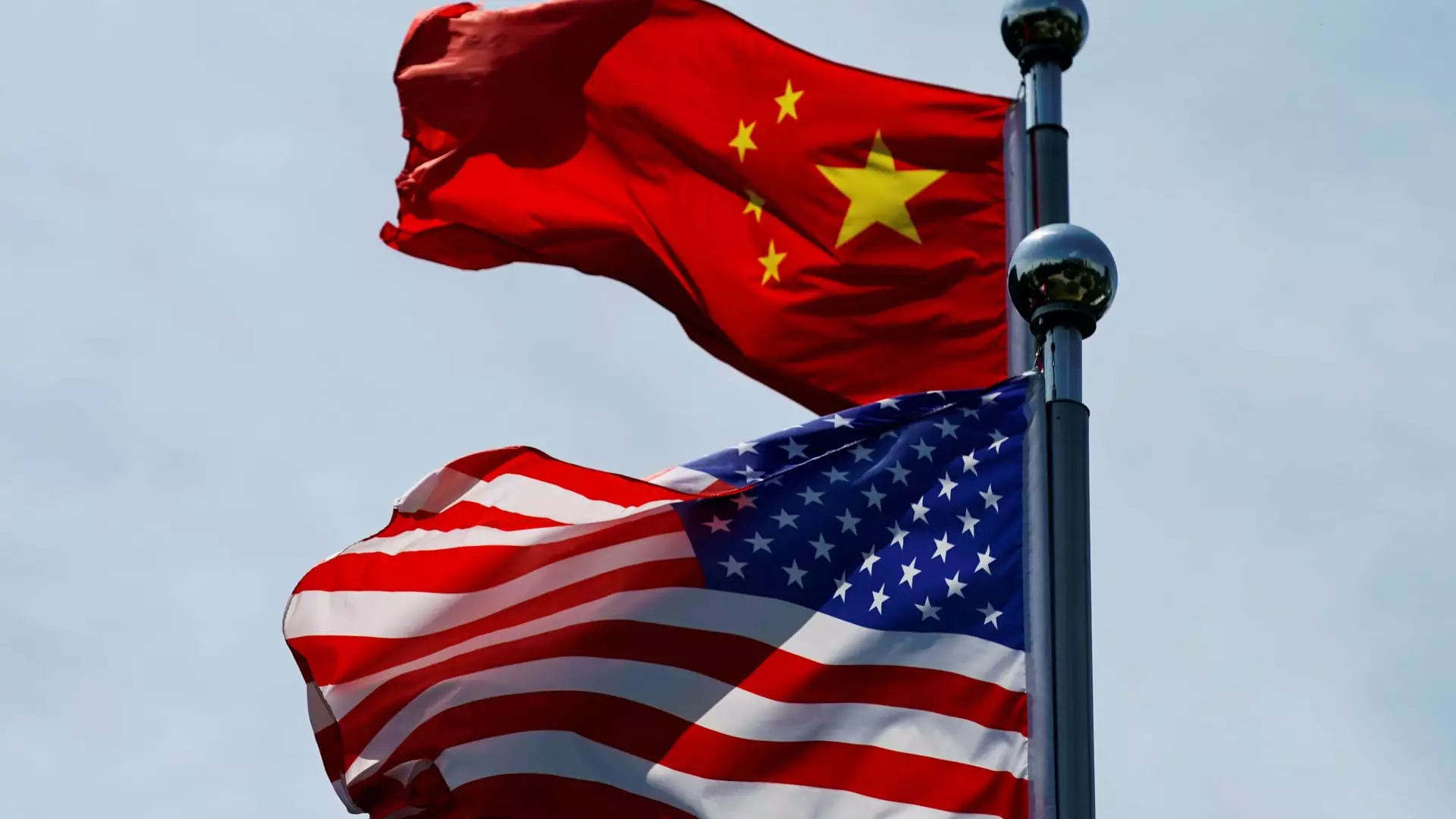In a significant move signaling a hardline stance on trade, President-elect Donald Trump recently declared plans to impose an additional 10% tariff on all goods imported from China. This announcement, made via his social media platform Truth Social, was accompanied by plans to increase tariffs on products from Mexico and Canada as well. As Trump prepares for his inauguration on January 20, the implications of these tariffs extend beyond mere economic adjustments; they symbolize a fundamental shift in U.S. trade policy that could have long-lasting effects on international relations.
Trump’s rationale for the increased tariffs centers around concerns regarding illegal immigration and the influx of illicit drugs into the United States, particularly Fentanyl. The President-elect has previously expressed disappointment in China’s efforts to curb the drug trade, implying that the country’s lack of stringent actions against drug dealers falls short of cooperation expectations. This narrative of blame signifies a broader strategy that suggests a willingness to utilize economic mechanisms to influence foreign policy.
The economic repercussions of Trump’s tariffs could lead to a significant trade war, which many experts believe would be detrimental to both involved parties. Liu Pengyu, spokesperson for the Chinese embassy in the U.S., stated that trade cooperation is fundamentally mutually beneficial. He emphasized the ineffectiveness of a trade war, echoing sentiments shared by numerous economists who argue that escalating tariffs often lead to retaliatory measures, worsening the economic climate for both nations.
Despite Trump’s aggressive stance—previously even suggesting tariffs as high as 60%—the proposed 10% increase is comparatively lower than the 20-30% that analysts anticipated. Kinger Lau, chief China equity strategist at Goldman Sachs, indicated that this unexpected lower tariff might suggest a less confrontational approach than previously envisioned, but it still poses challenges for China’s economy moving forward.
China’s economic strategy in response to proposed tariffs will likely include a combination of rate cuts, fiscal stimulus, and managing the depreciation of its currency to mitigate the impact of increasing duties. As the U.S. and China hold a critical commercial relationship, with the U.S. being China’s largest single trading partner, both sides have much at stake. The outcome of these tariff proposals will significantly affect global supply chains, prices for consumers, and economic growth prospects on both sides.
Experts assert that a complex web of interconnectedness exists between U.S. and Chinese economies. Beyond mere goods and services, the broader implications of a trade war include adverse effects on international economic stability. Companies reliant on raw materials from China may see price hikes, leading to ripple effects throughout various industries.
Trump’s focus on Fentanyl reveals a deeper intertwining of trade policies with domestic socio-political issues. The opioid crisis has been a persistent problem in the U.S., and Trump’s assertions link the epidemic directly to Chinese suppliers. By framing the tariff increase as a protective measure against narcotics trafficking, he shifts public perception, using trade negotiations as a means to address a pervasive health crisis.
Conversely, responses from Chinese officials indicate that cooperation exists in counternarcotics efforts. Since the November 2023 meeting between presidents Xi Jinping and Joe Biden, both countries have communicated on drug-related issues. This dialogue highlights the potential for collaborative approaches, which may become overshadowed by escalating tariffs and aggressive rhetoric.
As the inauguration day nears, the potential enactment of these tariffs brings forth urgent questions regarding the trajectory of U.S.-China relations. While the immediate economic implications are significant, the strategic position both countries take in the wake of these policies will determine their future interactions. Economic analysts predict that nations like Mexico and Canada, historically vital trading partners for the U.S., may also be impacted significantly by the unfolding events.
Trump’s planned tariff increases present a complex interplay of trade, foreign policy, and domestic issues. This strategy not only highlights the urgent need for a cohesive approach to international trade but also emphasizes the intertwined fabric of global economics where actions taken today will influence the landscape of tomorrow. The question remains whether such a path leads to economic resurgence for the U.S. or further entrenchment into contentious trade battles.


Leave a Reply